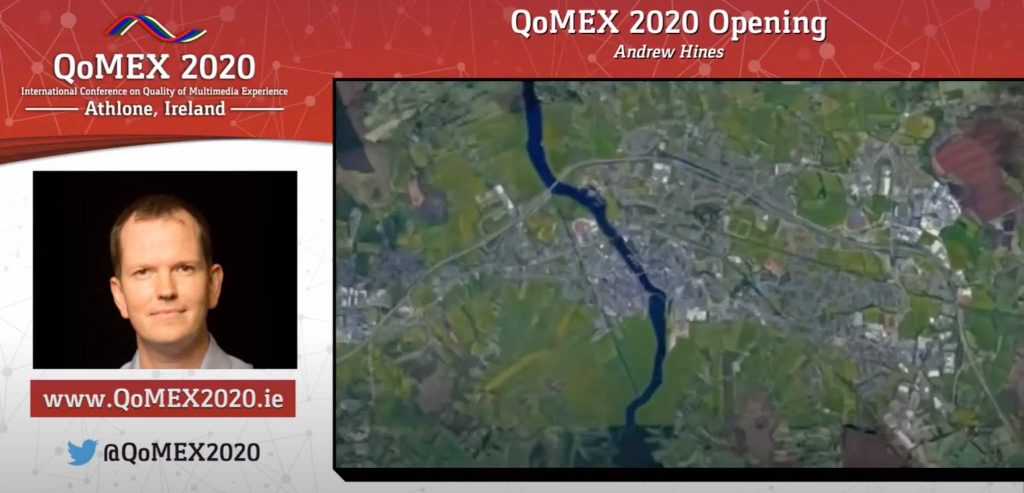
Andrew Hines (QxLab, UCD) and Niall Murray (AIT) hosted the International Conference on Quality of Multimedia Experience (QoMEX) in a virtual online format last week.
The conference provides an annual forum for experts from academia and industry to present and discuss current and future research on multimedia quality, quality of experience (QoE) and user experience (UX). The 12th edition, in 2020, was a conference unlike any that has gone before it. As a result of the global COVID-19 pandemic and associated travel restrictions, QoMEX 2020 was be held online as a virtual event. Without the planned “céad míle fáilte” or one hundred thousand welcomes for visitors to Athlone, Ireland, a three day technical programme and adapted social events were delivered in a novel and memorable experience for all attendees.
Curating an online conference programme was very different from a face-to-face event. But live streaming oral sessions, social zoom breakouts and virtual reality poster and pitch sessions through Mozilla Hubs gave attendees many of the regular conference experiences in a slightly repackaged way. There was even a traditional Irish style social music jam session.
Stephen Brewster (University of Glasgow), Hayley Hung (Delft University of Technology ) and Mel Slater’s (University of Barcelona) delivered keynotes to the largest ever number of attendees in the history of the conference with over 330 participants registered.
A big thanks to all of the support team based in UCD and AIT without whom the conference would never have made it into the cloud!

 Welcome and congratulations on becoming Postdoctoral Research Associate at QxLab. Helard joined QxLab from Universidade de Brasília where his PhD research into multimodal QoE models led to the development of an audiovisual model for predicting Quality of Experience using data-driven neural networks and autoencoders. His current research interests include audio-visual signals, quality metrics, multimedia processing and machine learning.
Welcome and congratulations on becoming Postdoctoral Research Associate at QxLab. Helard joined QxLab from Universidade de Brasília where his PhD research into multimodal QoE models led to the development of an audiovisual model for predicting Quality of Experience using data-driven neural networks and autoencoders. His current research interests include audio-visual signals, quality metrics, multimedia processing and machine learning.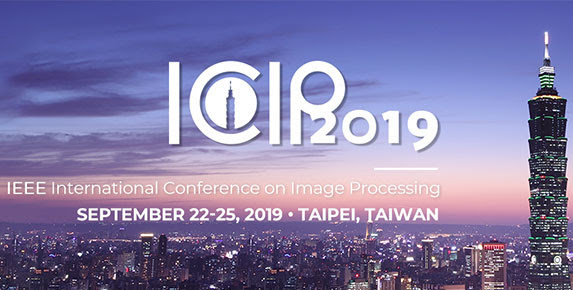
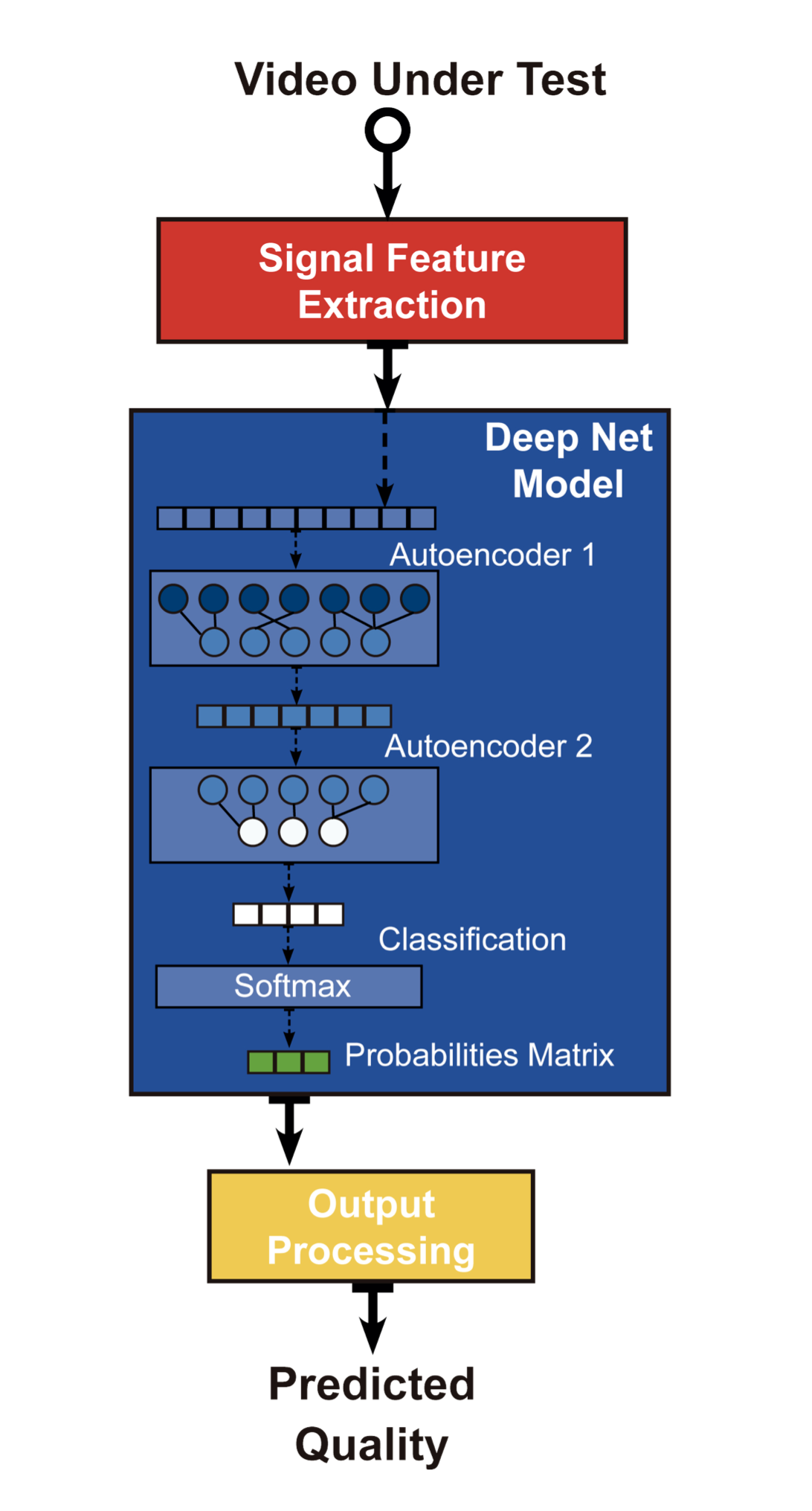
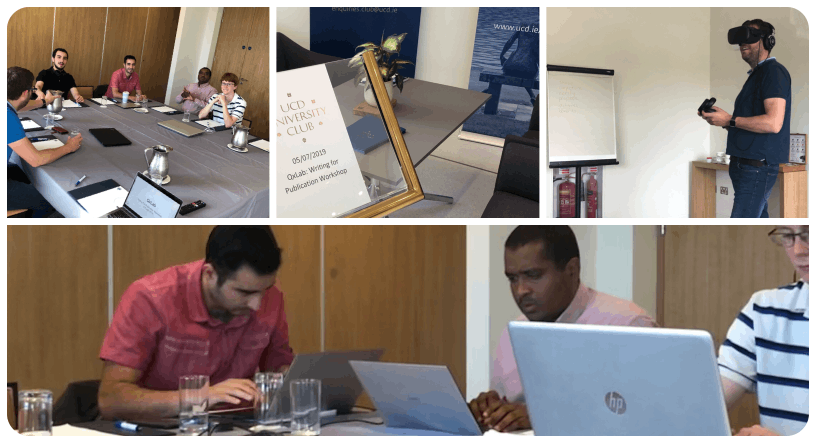
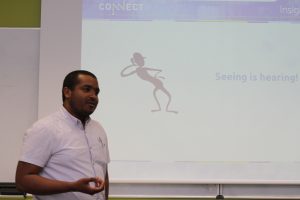
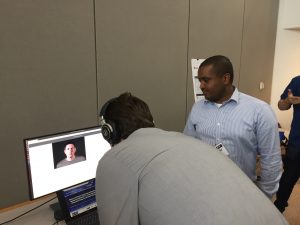
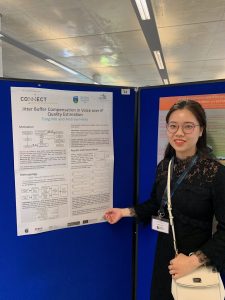 QxLab has two papers at the
QxLab has two papers at the 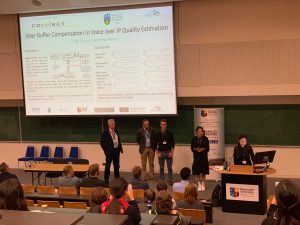
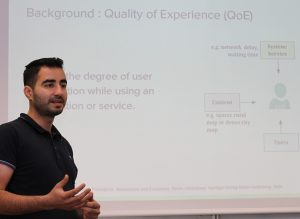
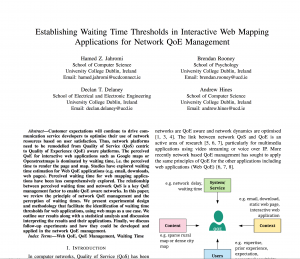 A second paper was presented by PhD candidate Hamed Jahromi entitled, “Establishing Waiting Time Thresholds in Interactive Web Mapping Applications for Network QoE Management.” Hamed’s work looked at the perception of time in web applications. Is an additional delay of half a second noticeable if you have already waited 5 seconds for a Google Map page to load? Time is not absolute and Hamed wants to understand the impact of delays on web applications in order to optimise network resources for interactive applications other than speech and video streaming. This work was co-authored with Delcan T. Delaney from UCD Engineering and Brendan Rooney from UCD Psychology.
A second paper was presented by PhD candidate Hamed Jahromi entitled, “Establishing Waiting Time Thresholds in Interactive Web Mapping Applications for Network QoE Management.” Hamed’s work looked at the perception of time in web applications. Is an additional delay of half a second noticeable if you have already waited 5 seconds for a Google Map page to load? Time is not absolute and Hamed wants to understand the impact of delays on web applications in order to optimise network resources for interactive applications other than speech and video streaming. This work was co-authored with Delcan T. Delaney from UCD Engineering and Brendan Rooney from UCD Psychology.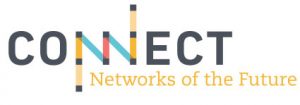
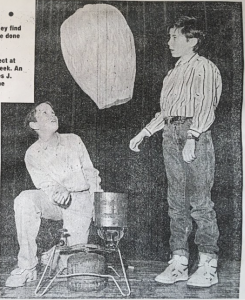 I was back at the RDS in Dublin visiting the BT Young Scientist and Technology Exhibition. Beginning in 1963, the exhibition concept was created by to UCD academics from the School of Physics. Fast forward to 30 years ago and I participated for the first of two visits. Arriving in again to visit thirty years later, I was struck by the professional finish of posters. So much has improved, but I still love the hand made stands and eye catching props to lure you into a project. As you can see from the newspaper clipping, our project may have involved a lot of hot air but I recall there was some scientific rigour to our methodology!
I was back at the RDS in Dublin visiting the BT Young Scientist and Technology Exhibition. Beginning in 1963, the exhibition concept was created by to UCD academics from the School of Physics. Fast forward to 30 years ago and I participated for the first of two visits. Arriving in again to visit thirty years later, I was struck by the professional finish of posters. So much has improved, but I still love the hand made stands and eye catching props to lure you into a project. As you can see from the newspaper clipping, our project may have involved a lot of hot air but I recall there was some scientific rigour to our methodology!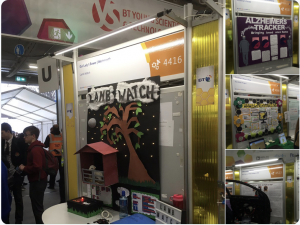
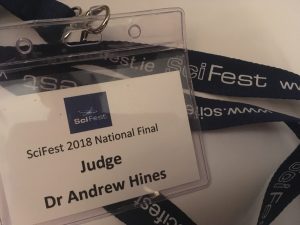 I met 2019 winner of the BT Young Scientist and Technology Exhibition, Adam Kelly, while judging the national finals of SciFest 2018 where he also won first prize. As a judge I was struck by his demonstration of all the attributes of a quality scientist: imagination, methodology and a great ability to communicate the work. He knew what he had done and was able to explain what he had not done, and why. Adam’s project for SciFest was entitled ‘An Open Source Solution to Simulating Quantum Computers Using Hardware Acceleration’ and was the overall winner out of more than 10,000 students competed in the regional heats to progress to the national SciFest 2018 final.
I met 2019 winner of the BT Young Scientist and Technology Exhibition, Adam Kelly, while judging the national finals of SciFest 2018 where he also won first prize. As a judge I was struck by his demonstration of all the attributes of a quality scientist: imagination, methodology and a great ability to communicate the work. He knew what he had done and was able to explain what he had not done, and why. Adam’s project for SciFest was entitled ‘An Open Source Solution to Simulating Quantum Computers Using Hardware Acceleration’ and was the overall winner out of more than 10,000 students competed in the regional heats to progress to the national SciFest 2018 final.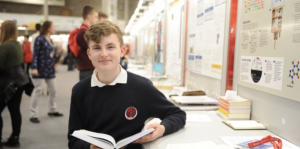
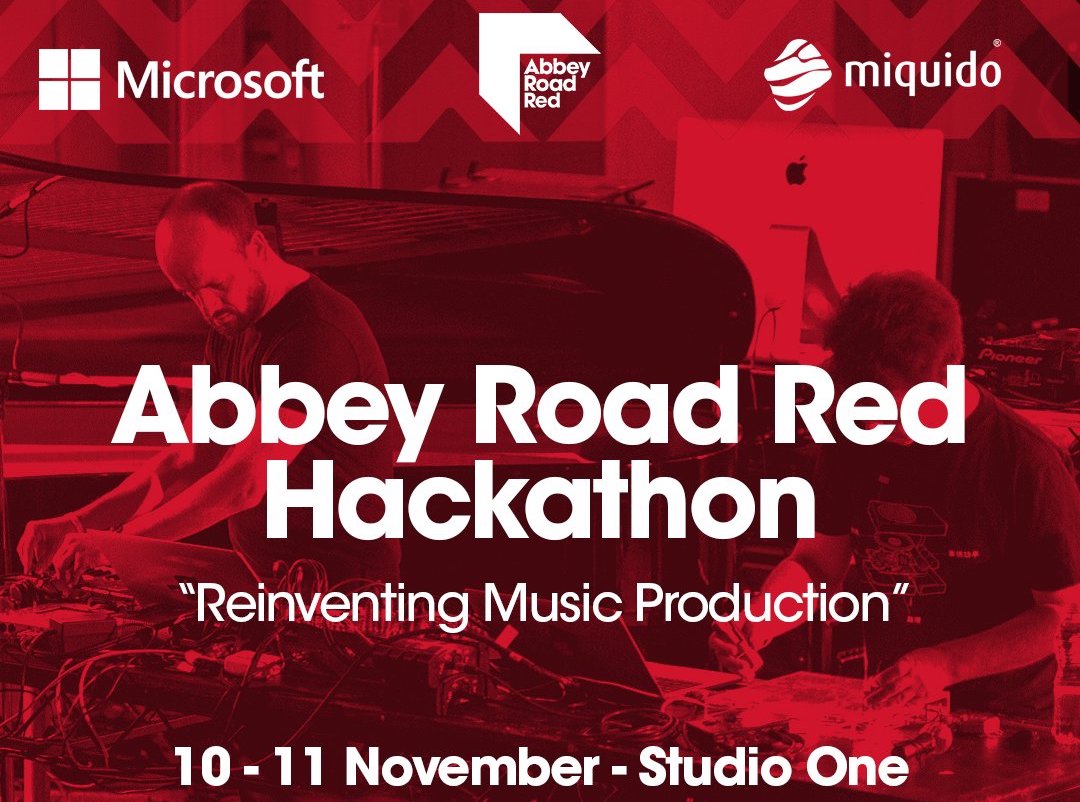 QxLab’s Alessandro Ragano was in London’s Abbey Road Studio with his team ‘the Tailors’. The ‘Tailors’ helped find a way to provide an artificial companion for singers and songwriters. Taking lyrics and sentiment using Microsoft’s Cognitive APIs.
QxLab’s Alessandro Ragano was in London’s Abbey Road Studio with his team ‘the Tailors’. The ‘Tailors’ helped find a way to provide an artificial companion for singers and songwriters. Taking lyrics and sentiment using Microsoft’s Cognitive APIs.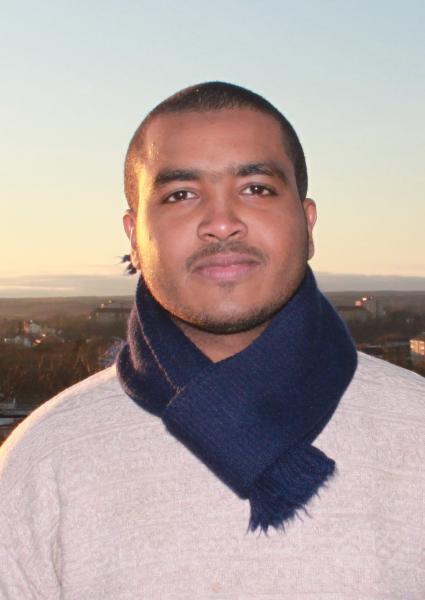 The SFI CONNECT research centre for future networks project has funded the recruitment of a new postdoctoral research fellow at QxLab. Dr AbuBakr Siddig completed a PhD at University College Dublin and an MSc in Blekinge Institute of Technology, Sweden. He brings experience in digital signal processing and 802.11 wireless networking to the group. Welcome AbuBakr!
The SFI CONNECT research centre for future networks project has funded the recruitment of a new postdoctoral research fellow at QxLab. Dr AbuBakr Siddig completed a PhD at University College Dublin and an MSc in Blekinge Institute of Technology, Sweden. He brings experience in digital signal processing and 802.11 wireless networking to the group. Welcome AbuBakr!
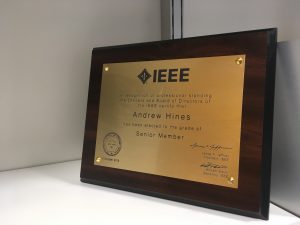 In recognition of his contributions to the profession, Andrew has been elevated to Senior Member status in the IEEE. And he even got a nice wooden plaque to prove it!
In recognition of his contributions to the profession, Andrew has been elevated to Senior Member status in the IEEE. And he even got a nice wooden plaque to prove it!